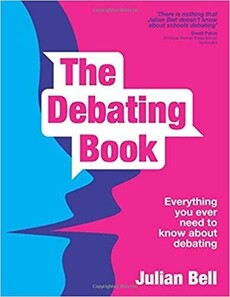
posted 9th October 2023

You live next door to a beautiful park. It's one of the best things about your house. Every morning you open the curtains and look out onto flowerbeds, trees, and general greenness. You're very grateful to the local council who look after the park.
Then the council gets into financial trouble. It needs to raise some money, urgently. So it rents out the park to the organisers of open air concerts. They put on a different gig every Friday and Saturday night all through July and August. The money raised helps them to keep the park open. But the noise from the concerts (not to mention from all the people coming and going, and the cars arriving and leaving) ruins your weekends; no chance of a peaceful night in with all that going on. Where once you enjoyed summer evenings looking out at the lovely park, now you feel like you're living in the middle of Wembley stadium. You feel pretty depressed about the situation.
You've heard that exercise is good for improving your mood, so you decide to join an exercise class. As you work long hours, it needs to be first thing in the morning. Good news! A local personal trainer is offering classes in the park, two minutes from your front door. What better way to start the day than working off your stress with a few burpies and squat thrusts on a summer morning, looking at the trees and listening to the birds singing?
Eventually summer comes to an end, and so do the concerts. You've found you like the exercise class, though, so you keep going to it. Problem: it's not light in the mornings any more. How will we see the trainer? Luckily, in another part of the park there is a statue of a Famous Local Resident which the council have decided should be lit up all night, because they want to honour the Famous Local Resident. So the class moves to just in front of the statue, and uses the floodlights to exercise by.
Two decisions made by the local council have had a significant impact on your life. The first was to stage concerts in the park, which ruined your summer weekend evenings. The second was to illuminate the statue of the Famous Local Resident, which made your winter mornings much better. One decision had a negative impact on your life; the other had a positive impact. However, the council didn't let out the park for concerts because they wanted to annoy you; they did it to raise money. And they didn't light up the statue to help you and your classmates do ab crunches on a winter's morning; they did it to show respect for someone from history. The positive and negative impacts of the council's actions are what is known as externalities. An externality is an impact felt by a person, institution or group of people that is the unintended consequence of an action by another person or institution. An externality can be either positive or negative.
What has this got to do with debating? Many motions (most motions) propose a change in the status quo. Those arguing for the proposition need to prove that the world will be better after the proposed change; that then will be better than now. But it may be the case that the proposed change, even if it brings a benefit, has an impact that is not intended that may actually cause harm: a negative externality. Or it may be the case that the proposed change brings benefits completely unconnected with the original action, which are a kind of bonus: a positive externality.
Let's take an example. The motion is This house would make the study of Mandarin compulsory in schools. The proposition can argue for all the benefits of studying Mandarin: China is a rising power, it is only going to become more important, Mandarin is a challenging, intellectually demanding language, etc. etc. But the opposition can pick up on a negative externality. All those benefits may be real, they can say, but what about all those teachers trained to teach French, German, Spanish, Italian? There won't be room on the curriculum for their subjects, so many will be made redundant, and you will lose thousands of talented teachers. If the proposition are smart, they will have anticipated this negative externality and mitigated it, by proposing a scheme to retrain teachers of other languages to teach Mandarin, making good use of both their language learning skills and their teaching skills.
Or take another example, with the motion This house would provide free child care for the first three years of a child's life. For the proposition, the clear benefit of this measure is the financial support it gives to parents struggling with the cost of childcare. But there is also a positive externality. The measure will mean that thousands of parents (let's face it, mostly women) who otherwise might have given up work to care for their children will now be able to go back into work, thereby helping tackle the current labour shortage. The proposition can present this as an added, bonus benefit.
If you're the proposition, don't think only of the positive impacts of your proposed change; also anticipate the possible negative externalities, and find a way to mitigate them by making their impact less harmful, while at the same time looking out for positive externalities and making the most of them. If you're the opposition, seek out negative externalities that flow from the change the proposition is arguing for, and point them out.



